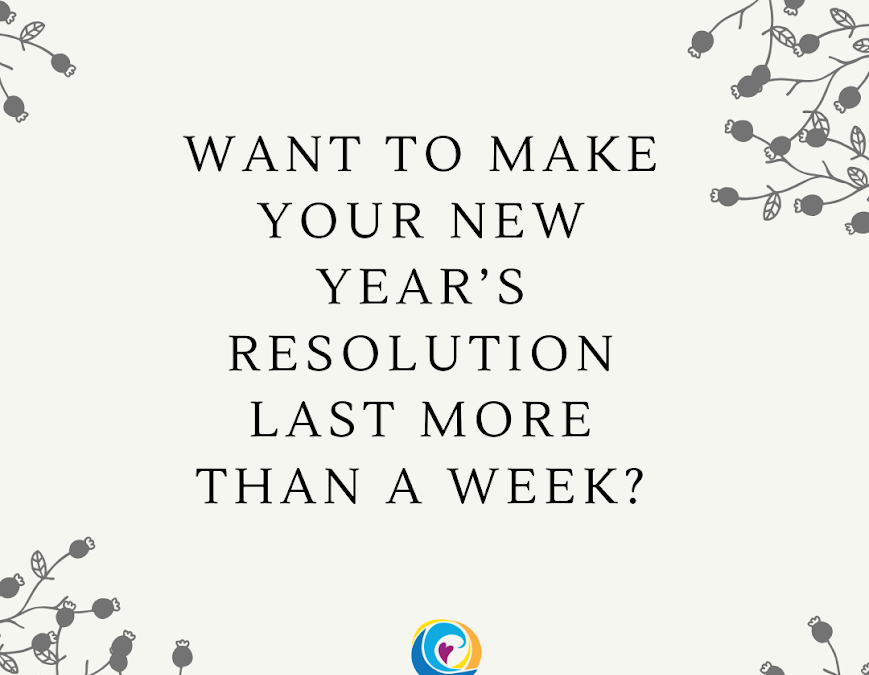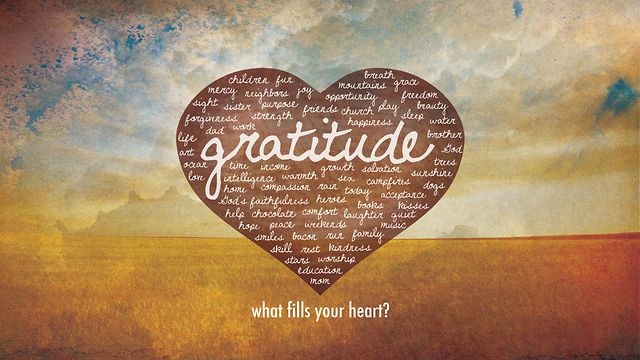
Want to make your New Year’s Resolution last more than a week?
Welcome to the season of goal setting and self-flagellation!
I stopped setting New Year goals years ago, because I always started off the year feeling like a failure. I am not alone.
Research has shown that less than 25% of people are still keeping their goals by the end of January. Worse, only 8% of people achieve their New Year’s goals.
Nevertheless, we are still driven to set big goals, create vision boards, buy gym shoes, and hope for huge changes–because of a day on the calendar.
(Don’t even get me started on how weird I think it is that we are supposed to be awake, excitedly happy, kissing someone, and jumping up and down blowing a horn because the clock goes from 11:59 to 12 on a cold, dark, night of the year…)
But back to the original topic…There is a lot of information out there on how to set goals and keep them. Yet we continue to fail. Why?
Most of us don’t keep our goals because we don’t believe we deserve them.
If you decide to set a goal for yourself, I suggest a small, gentle practice to help you create a shift in your beliefs.
Say to yourself “I’m the kind of person who (insert your goal.)”
I first learned this tool on a visit to the East Coast to meet with my coach. I stay with my friend Mellissa when I first arrive. I usually didn’t exercise on those trips, because the meetings start at 8am, (5am my internal clock time). That felt WAY too early for me to get up early to exercise.
Melissa asked me “do you want an idea to help with that?” Since she is a mindset maven, I of course answered “yes.” She said “say to yourself ‘I’m the kind of person who exercises.’”
She learned this idea from James Wedmore’s podcast interview with Colin Boyd http://mindyourbusinesspodcast.com/podcast/255
I said it. It felt good. I said it several more times that day to Melissa. I said it before I went to bed. I said it when my alarm went off at 6am (3am my internal time.) And I got up and exercised! For good measure, I said it while I was exercising. That felt super good! That was a year ago, and I still use that practice when I’m on the East Coast. I feel SO much better having exercised before sitting all day.
Here are 4 reasons it worked.
- I didn’t actually set a goal. I just kept repeating how I wanted to act. I didn’t qualify my success on a certain behavior. I just kept repeating to myself what I wanted to believe about myself.
- I didn’t make the statement too audacious. I didn’t say “I’m the kind of person who exercises every day for an hour, for the rest of my life.” Ack! I would instantly rebel. That goal is too big and unforgiving. The first day I didn’t exercise, my goal would be a failure.
- Because I chose a statement that was a stretch, but not too big, it felt good to say it. I literally felt better just by saying the statement.
- I kept repeating the statement. Remember, beliefs are just thoughts we keep thinking. When we keep repeating a statement, positive or negative, it becomes a belief.
If you have a behavior you want to shift, practice saying “I’m the kind of person who (insert the behavior you want.). Notice how it feels to say that thought. If it doesn’t feel good, try other statements until you find one that feels good to say.
Repeat it. Say it out loud, write it on sticky notes, put a reminder on your phone, tell a friend. Repeat it until it feels like a belief about you. If you believe you are the kind of person who…you will be the kind of person who…
Let me know how it works for you!
Take care,

